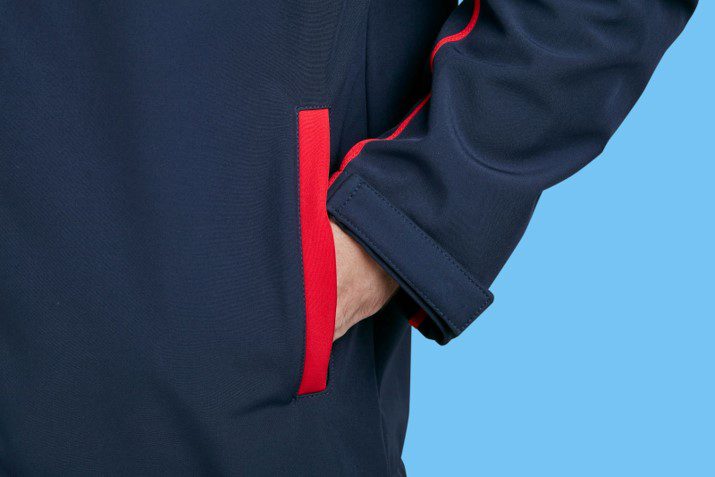Sustainable Branded Clothing: What are my options?

Are you looking to make the switch to sustainable fabric for your uniforms and workwear? We know that pretty much everyone wants to make a difference in protecting the planet, every business I speak to has green goals and a target for reaching them. But what I also notice is that garments are not always as easy to navigate as, for example, paper and packaging which are much more widely recyclable at home and at work. In this article, I’ll explore your options for eco-friendly fabrics for your uniforms and branded workwear.
When it comes to garments, there are many elements to consider before making the switch to a sustainable option for your uniforms and branded workwear. It is important to understand how to meet the needs of the present without compromising the needs of future generations.
With advances in technology, product development, and discovering more eco-materials the process of selecting and using sustainable fabrics for your uniforms and workwear is becoming easier as options grow.
How long do garments last and what happens when you’re done?
When deciding on your branded clothing collection, a key part of the selection process is considering the end of life of those products. A low-cost product ordered in high volume used to be the approach of many of our clients, but it is important to weigh up mass marketing with the short lifespan of garments and the impact this has on the planet.
Recent impact reports have identified that although it’s not the largest product category ordered, textiles far outweighed the other categories regarding the worst carbon footprint.

Why is recycling textiles important?
Once they end up in landfills decomposing clothes release methane, harmful greenhouse gas, and synthetic fabrics like polyester and lycra can take hundreds of years to biodegrade. The average cotton polo shirt takes 30-40 years to decompose alone.
Some things to consider when choosing eco-friendly textiles & branded clothing:
Fabric – While many new and emerging sustainable fabrics are touted to be better for the planet, these eco-friendly fabrics are not created equal.
- What is the garment made from?
- Check the label on the garment – is it certified? Look out for the GOTS logo to be sure
- Check the supplier’s certificate to see if it is 100% organic or recycled materials being used?
Dyes- Did you know that the colour of the garment is often one of the most harmful parts of clothing production? Some dyes such as the notorious Ozo dyes are even considered carcinogenic.
- Ask what dyes are being used?
- Are they environmentally friendly?
- Are they Biodegradable?
Manufacturing Process- A truly eco-friendly fabric is produced in an environmentally friendly way without the use of harmful chemicals that are used in conventional textile production.
- Does the production process have any certifications? (Sedex, for example)
- Is the water used in production being used cleaned and re-used?
- What packaging are they using?
- Are they using renewable energy?
5 Garment Standards you Should Know About
You will find many symbols or acronyms on garments and we know how overwhelming it can be – so here is an explanation of 5 common standards.
GOTS – The Global Organic Textile Standard (GOTS) is an independent guarantee that all cotton used in production is 100% certified organic. It’s an internationally recognised organic textile standard. GOTS means safe working conditions, no discrimination, and no child labour. GOTS-approved products have the entire supply chain verified, even the farms must have certification to a legally recognised standard. The details matter! Buttons, threads, and zips have to also meet the strict residue criteria of GOTS.
EU Ecolabel – Established in 1992, and recognised across Europe and worldwide, the EU Ecolabel is a label of environmental excellence that is awarded to products and services meeting high environmental standards throughout their life-cycle: from raw material extraction to production, distribution and disposal.
Fairtrade -The original Fairtrade Mark has always stood for fairly produced and fairly traded products. It also means the product is fully traceable (kept separate from non-certified products) from farm to shelf.
SA8000 – Sustainability SA 8000 – Certification – Social Accountability. SA 8000 is an international certification standard that encourages organisations to develop, maintain and apply socially acceptable practices in the workplace.
Oeko-Tex – Oeko-Tex certifies non-hazardous end-products and all of their components. Products that carry the Standard 100 label have been tested and proven free of harmful levels of toxic substances. By contrast, GOTS certified the organic production of raw materials such as cotton, flax, etc.
Now you’ve had some sustainable clothing food for thought, are you ready to make the switch to eco-friendly branded workwear? Armed with the knowledge of these specific standards, ask your chosen supplier to which they comply or are accredited.
And if you have questions, let Streamline help you ensure your future textiles or branded clothing is both eco-friendly and responsible. Contact our team of experts for assistance in sourcing the right products that work for both your business and the environment.
